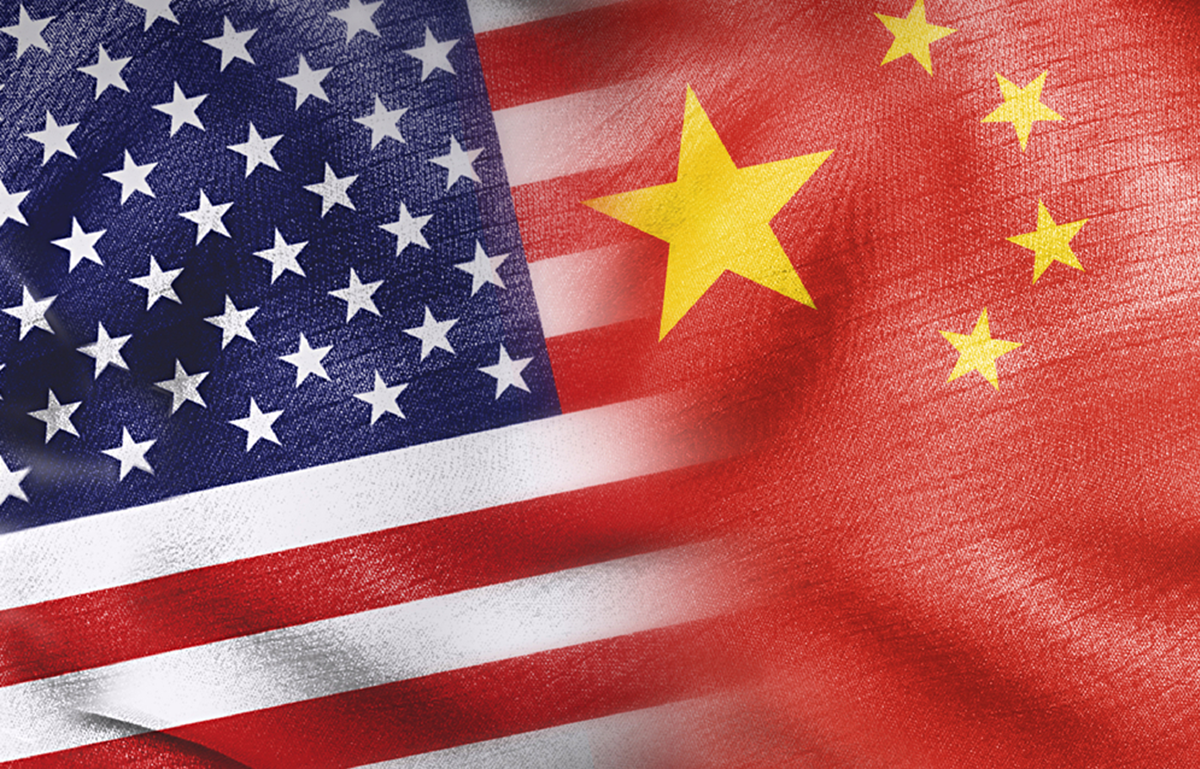Last week I wrote about the Chips Act and addressed the “fair competition” argument made in a Wall Street Journal Op-Ed authored by the CEOs of Ford and Intel. For those who don’t recall, the Chips Act is a corporate welfare scheme which intends to provide $52 billion in grants and $24 billion in tax credits to the US semiconductor industry. The authors of that piece argued that these subsidies and tax credits are necessary to “level the playing field,” since many foreign countries subsidize their own semiconductor industries. My response was essentially that we shouldn’t adopt bad policies here at home just because other countries are also doing it.
This week I’d like to revisit the Chips Act debate and respond to what I believe is a much better (though still unconvincing) argument in favor of the bill. This one also comes to us from the Wall Street Journal.
“Subsidies and tariffs waste resources, burden taxpayers and politicize decisions best left to markets,” writes Greg Ip, Chief Economics Commentator at the Wall Street Journal. “No wonder economists extol free trade.”
“But there are exceptions,” Ip continues, “and the subsidies that Congress is on the verge of approving for semiconductor production may be one. So might the tariffs that President Donald Trump imposed, and President Biden has maintained, on imports from China.”
The reason these are good measures, Ip says, is that they help promote national security. “Allowing the production of semiconductors, and countless other products, to migrate to China may be economically efficient, but has a downside: the potential for China to leverage that dependence in some future conflict with the U.S. or its allies, much as Russia is now leveraging Europe’s dependence on its gas to undercut support for Ukraine.”
Ip quotes Sen. Todd Young (R., Ind.) to underscore his point. “Real world circumstances are a lot more complicated than the economic models that I learned at the University of Chicago,” says Young, “and have become more complicated with the emergence of our near-peer rival, and its state capitalist economic model.”
Ip notes that even Mr. Free Trade himself made an exception for national security. “Defense is of much more importance than opulence,” wrote Adam Smith.
Economic “Dependence”
In response to this argument, the first issue to address is the word “dependence.” That word is really convenient for anti-free-trade advocates, because it just sounds bad. It’s like calling fossil fuels an “addiction” or saying that someone who wants to reduce military spending is “soft” on defense. The fact is, rhetoric can be powerful, and the word “dependence” is one of those powerful words. It conjures up feelings of vulnerability and weakness. That can’t be good, right?
Wrong.
There are plenty of contexts where economic dependence is awesome. Consider your relationship with your local superstore. You depend on them for basic necessities. Is there a risk they could turn on you, leaving you to fend for yourself? Sure. But that’s not a good reason to aim for self-sufficiency.
As the article concedes, specialization and the division of labor are tremendously beneficial for all of us. Imagine how much more it would cost you to grow all your own food and make all your own clothes. A lot, right? The same principle applies at larger scales. The fact is, without global interdependence, we’d be much worse off. Just like growing all of our own food makes no sense, it also makes no sense to pre-emptively cut ourselves off from world trade on the chance that, should we establish dependencies, we might one day be cut off.
“What protectionism teaches,” Nineteenth Century economist Henry George said, “is to do to ourselves in time of peace what enemies seek to do to us in time of war.” Namely, to restrict our trade with the rest of the world.
But some nations can’t be trusted, we are told. Yes, there’s a cost to trade restrictions in the form of lost economic efficiency, but Ip argues it’s “worth it” to restrict trade with nefarious partners like China. This brings us to the crux of the matter.
Cost for Whom?
The title of Ip’s piece, which is also his thesis, is as follows: “Semiconductor Subsidies, Tariffs Are the Price of Reducing Dependence on China.”
By calling these measures the “price” of reduced dependence, he’s invoking the metaphor of a purchase. You go to a store and you buy something. There’s a price, of course, but you reason that the benefit is greater than the cost, so you buy it.
In this case, Ip is arguing there are “benefits that free traders don’t consider,”—namely, the benefits of geopolitical security—and that these benefits are greater than the price of lost economic efficiency, and therefore we should “buy in” to these measures. In other words, the benefits to America of restricting trade outweigh the costs.
But this is an untenable position. “America” is a collective, not an individual. Why does this matter? Because only individuals can experience costs and benefits. There is no such thing as collective “‘interests” or ends. There are only individual ends.
From an economic perspective, the idea of weighing costs and benefits for “a nation” is nonsensical. Cost and benefit only have meaning with respect to individual actors and individual choices. (Economists call this idea methodological individualism).
The real question, then, is not whether these policies benefit the abstract entity known as “America,” but whether they benefit individual Americans. On this point, Ip has a difficult case to make.
Ip knows full well that without these policies, millions of American consumers would clamor for Chinese products. That’s why the policies are ostensibly needed in the first place. But think about what that means. These consumers believe, as demonstrated by their actions, that the benefits of economic efficiency to them as individuals outweigh the costs of becoming economically “dependent” on Chinese companies.
To put it another way, the millions of consumers who are eager to buy these products are saying, with their actions, in one loud voice: “the benefit of free trade outweighs the cost in our view.” And what is the protectionist’s response to this? “Yeah, well, you’re wrong. I know better, and I’m telling you it’s actually in your best interest to avoid these arrangements.”
Here the underlying paternalism of the protectionist is laid bare. Fundamentally, the protectionists making this argument don’t think consumers can be trusted to weigh the costs and benefits of trading with Chinese companies for themselves. They think the average person needs to be restricted “for their own good,” to be told what they can trade and with whom, and how and where. “I know you would choose the Chinese product if you could,” they are saying, “but for your own good I won’t let you.”
Now, it is true that many people are genuinely naive and will engage in potentially risky arrangements without understanding the risks (like the risk of becoming economically dependent on companies based in China). But the solution to such a problem is not to arrogantly assume we know what’s in their best interest. For all we know, they might still prefer the benefits of free trade even if they were fully aware of the risks.
The point is, Americans’ purchasing decisions show they want free trade with China, so there is little basis to argue that free trade is actually a net harm for them. The only way to make that claim is to assume there is widespread ignorance of the risks, and that the risks are so great and the ignorance is so massive that the average American consumer, if sufficiently informed, would in fact opt to voluntarily take the more expensive, non-Chinese option. In theory, this is possible, but it seems far more likely that even with full knowledge of the risks, the vast majority of consumers would still prefer the Chinese option. In other words, for real people facing real choices, the benefits of trade with China almost always outweigh the cost of becoming “dependent.” And if that is their judgment, who are we to say otherwise?
When Goods Cross Borders
The argument above should be sufficient to uphold free trade. But for those who may still be on the fence, there is another reason to oppose trade barriers and subsidies. Namely, that national security may very well benefit from more trade with China rather than less.
Say I was worried my local superstore might turn against me and cut me off. That would be terrible for me, because I’d have to grow my own food and it would be way more expensive. So, what’s my best strategy? On the one hand, I could pre-emptively cut myself off and just grow my own food. I take the hit up front, and it’s a big hit, but at least I don’t expose myself to the risk, right?
Sure, but here’s another strategy. I become one of the superstore’s biggest customers, to the point where I represent 5, 10, even 15 percent of their revenue. The more I trade with them, the more they depend on my business, and the more they stand to lose should they cut me off. Not only do I reap the benefits of not having to grow my own food, I have the added benefit of knowing that they have a strong financial incentive to play nice with me, even if they don’t want to. Trade makes it incredibly expensive for them to initiate a conflict.
The same reasoning can be applied to geopolitics. Like it or not, China is America’s superstore. They create tons of products for Americans to consume, and Americans benefit immensely from the arrangement. The good news is, trade provides a strong incentive for China to avoid conflict, because they stand to lose a lot if they suddenly cut America off.
This point can be summarized with a common saying usually attributed to Bastiat: “When goods don’t cross borders, soldiers will.” The opposite is also generally true. When goods do cross borders, soldiers don’t.
In short, trade creates interdependence, and interdependence has a remarkable track record of maintaining peace.
This article was adapted from an issue of the FEE Daily email newsletter. Click here to sign up and get free-market news and analysis like this in your inbox every weekday.

